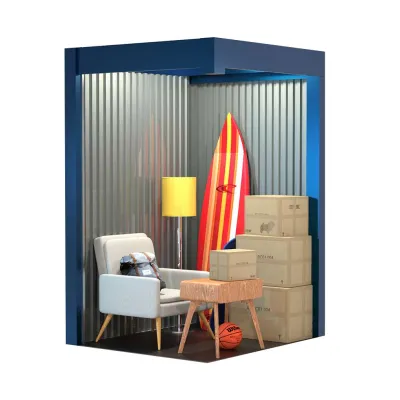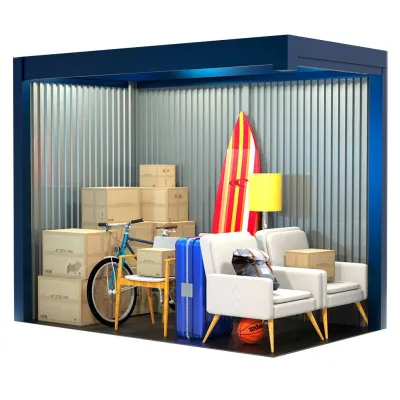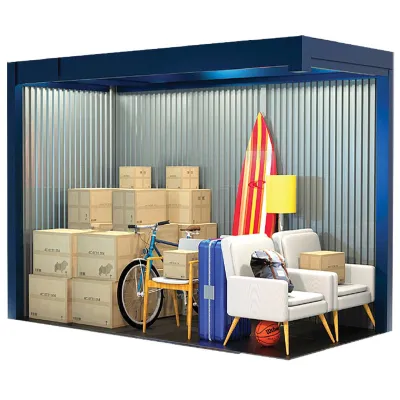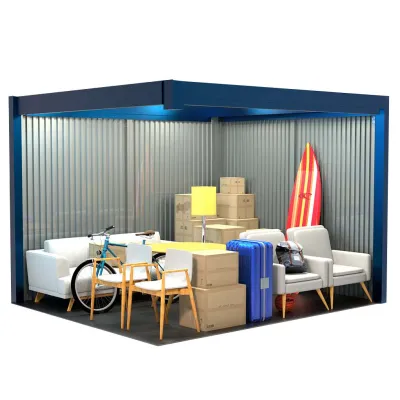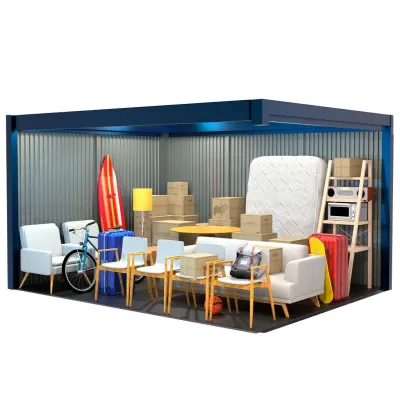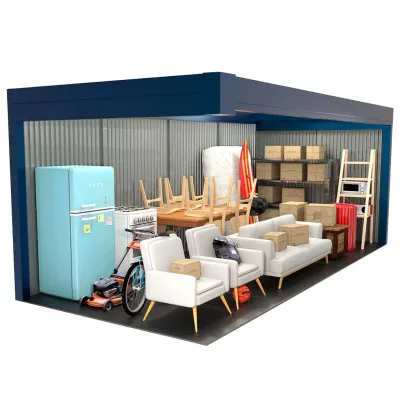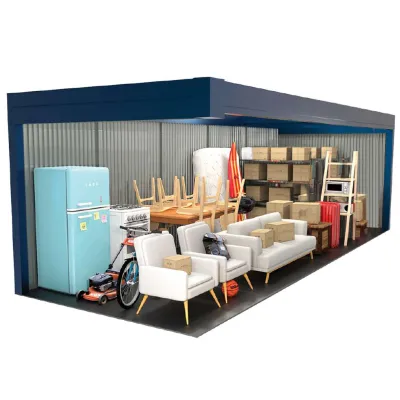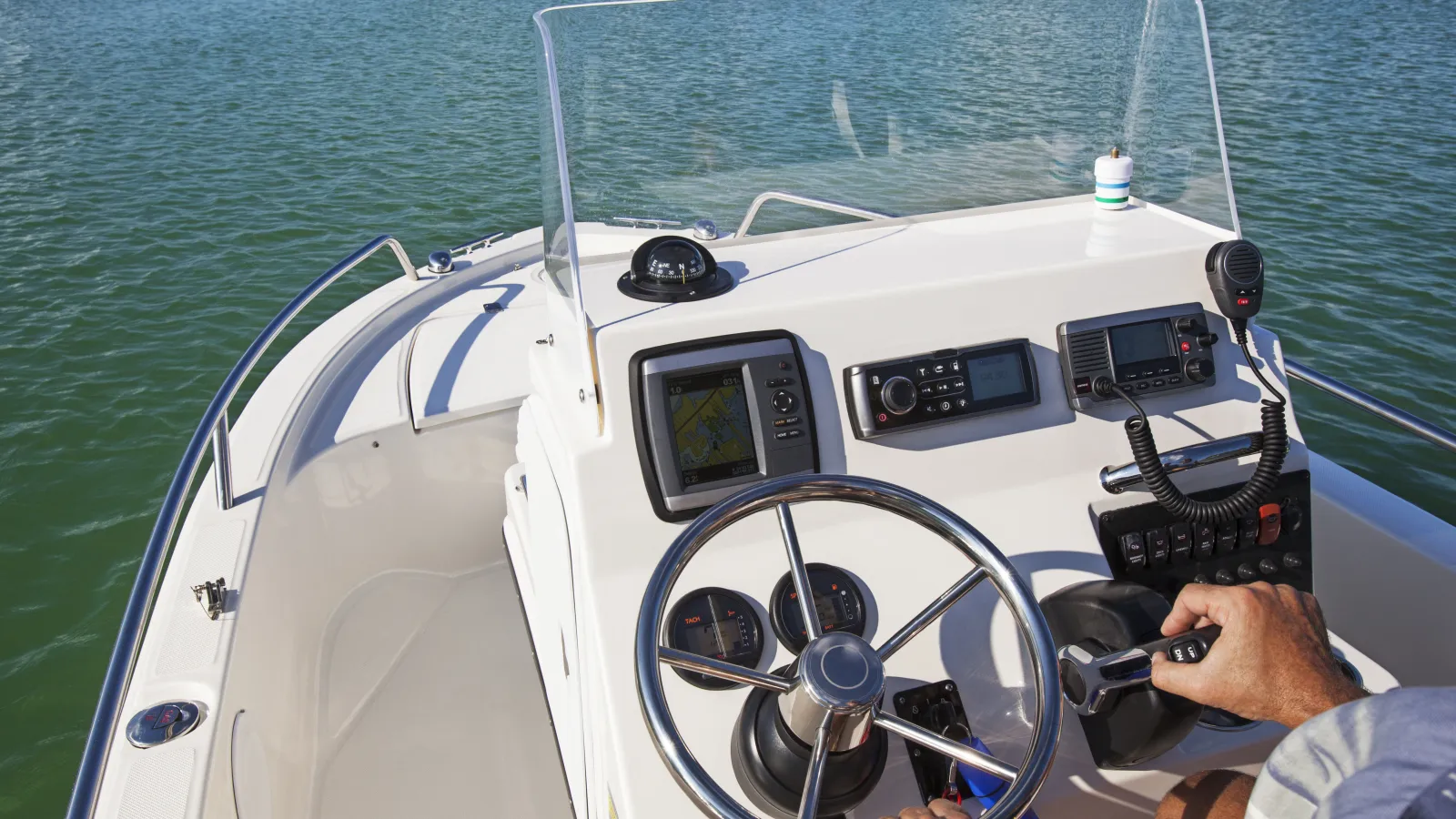
A Guide to Expert Boat Storage
Nothing rivals taking the boat out on those hot summer days: the wind whipping your hair, the smell of the salty sea air, sun glimmering on the waves. If you're lucky enough to have a boat, you know there's nothing quite like it.
But when that summer fun is done and cold weather sets in, are you ready with the right boat storage? You want to make sure that investment is safe and ready come spring, so let's dive in (pun intended) to the ins and outs of your boat storage options.
Choosing the Perfect Boat Storage Option
Each boat storage option has its pros and cons—take a look through these locations and decide which boat storage option works best for you.
First, consider where you'll be storing your boat: outdoors or indoors? Outdoors is usually more economical but requires a bit more work in terms of winterizing and covering the boat. Indoor storage can save you time and provide peace of mind, especially if the facility has surveillance.
There are three main options for boat storage:
On your property
A marina
At a storage facility
If you have the room, keeping your boat on your property could be the most convenient and cost-effective choice, but this requires you to have the space and HOA permission. If that's an option, then you can avoid the hassle of storing away from home altogether.
Marinas offer storage for boats, as well as other services like repair and maintenance. Depending on the marina, they may offer a reduced rate for seasonal storage and other discounts. Be sure to research thoroughly to get the best option for your needs.
Lastly, self storage facilities provide an array of services that can help protect your boat from theft or damage during the off-season. You may want to consider a local storage facility if you don't have the room at home and want easy accessibility. It's a great option for both short-term and long-term boat storage.
Benefits of a Self Storage Facility for Your Boat
From specialized storage units to high-tech security systems, this boat storage option offers many benefits for boat owners. Here are some reasons why a self storage facility may be the perfect option for your boat:
- 24/7 Surveillance: Most self storage facilities have advanced security systems in place, such as cameras and gated access. This gives you peace of mind knowing that your boat is being monitored even when you can't be there.
- Flexible Lease Options: Unlike marinas that often require a seasonal or yearly commitment, self storage facilities offer flexible lease options. This means you can choose to store your boat for as long or short as you need without any long-term commitments.
Boat Storage Tips & Tricks
No matter which boat storage option you choose, there are preventative measures and other tips and tricks you can employ to keep your boat in great shape for years to come.
- Winterize Your Engine: This will protect it from freezing temperatures, corrosion, and other damage caused by the cold weather. It's easy enough to drain and add the antifreeze yourself but if you don't have the time or don't want to mess with that job, there are boat technicians that will take care of it for you—just do a quick Google search for people in your area!
- Clean Before Storing: Before putting away, make sure to give your boat a good cleaning inside and out. This will help to prevent mold and mildew growth over the winter.
- Remove Any Canvas or Fabric: If your boat has a rain tarp, umbrella, or other fabric accessories, be sure to remove them prior to storing.
- Dry Everything Out: Make sure all of the compartments are completely dry before closing them up for storage.
- Lubricate Moving Parts: Add a bit of lubricant to any moving parts such as the rudder and propeller shaft to prevent rust and corrosion.
- Drain All Fluids: Any fuel, oil, and other fluids should be drained out of the engine and tanks prior to storage.
- Invest In a Cover: This will protect your boat from mildew, dirt, dust, and any other debris that could accumulate over the winter.
- Use Blocks or Stands: This will help support the hull evenly during storage, preventing any pressure points that could cause stress and damage.
- Engine Maintenance: Get a tune-up prior to storage to ensure your engine is running at peak performance come springtime.
- Inspect and Repair Any Damage: If you notice any wear or damage, make sure to inspect it thoroughly and perform any necessary repairs.
Do You Need to Maintain Your Boat While It's in Storage?
Although we wish it were, storing a boat is not a simple matter of parking it away and covering it until the next season. Regular check-ups, cleaning, and maintenance are necessary to ensure your boat is ready for summer, no matter which boat storage option you choose.
Regularly Check on Your Boat
Frequent visits—once a month would be plenty—to check for leaks or damage can prevent minor issues from becoming major setbacks. A simple checklist for these visits can make the inspection process more efficient and comprehensive.
Battery Maintenance
Batteries can drain over time even when not in use. To prevent this, consider disconnecting the batteries and storing them separately. If you opt to keep them connected, using a battery tender can help maintain their charge.
Upholstery and Interior
The boat's interior is just as important as the engine. Moisture can lead to mold and mildew, so ensuring the boat's interior is clean and dry is crucial. Ventilation systems, dehumidifiers, and periodic cleaning are effective methods for maintaining a proper interior environment.
Does Your Boat Need Insurance While in Storage?
The answer is not straightforward and depends on various factors, including the storage method, your policy details, and the amount of risk you are willing to undertake.
What Type of Insurance Do You Have?
Boat insurance typically falls under two categories: agreed-upon value policies or actual cash value policies. The former pays the predetermined amount in case of total loss, while the latter factors in depreciation at the time of the loss.
Factors to Consider
Consider the value of your boat, the likelihood of damage, and the cost of repairs. If you have a loan on your boat, the lender may require you to maintain insurance even while in storage. Additionally, certain storage methods, such as dry-stack or covered sheds, may be less risky than others, potentially affecting the need for insurance.
The Cost of Storage Insurance
The cost of insuring your boat while in storage is typically lower than when in use. Speak with your insurance provider to understand the costs and coverage options available to you. They can also help you assess the need for insurance based on your specific circumstances and storage arrangements.
Getting Your Boat Out of Storage and Back to the Water
After a long winter or stint in storage, your boat might need some TLC before taking to the water. Preparing your boat will take a little more than a quick dusting; here are some guidelines to follow when taking your boat out for the first time after storage.
Mechanical Systems
The mechanical systems, such as the engine and electrical components, require thorough checks. This includes inspecting the fuel system for leaks, ensuring electrical connections are secure, and starting with a fresh battery or fully charged battery if it was left in place.
Cleaning and Detailing
The exterior of the boat needs cleaning to remove any grime and to protect the paint and finish. Interior cleaning should also include a thorough check for damage to upholstery. A well-detailed boat is both visually appealing and functions efficiently.
Safety Equipment
Check that all the safety equipment, from life jackets to fire extinguishers, is on board, unexpired, and in good working order. Safety should always be a priority, and this equipment is often overlooked during the preparations to launch.
Documentation and Legal Requirements
Ensure that all necessary documentation, such as registration and insurance, is updated. Familiarize yourself with any new regulations or laws that may apply, especially if your boat has been stored in a location with different requirements.
Protect Your Most Important Investments With Midgard Self Storage
If you're looking for a secure, local boat storage option that saves you space at home, you'll want to look into self storage. You won't have to worry about the weather, water, or potential damage to your property when you store it at Midgard Self Storage.
With advanced security systems, flexible payment options, and experienced staff, Midgard is the perfect choice for any boat owner. Find a location near you and check us out today!

